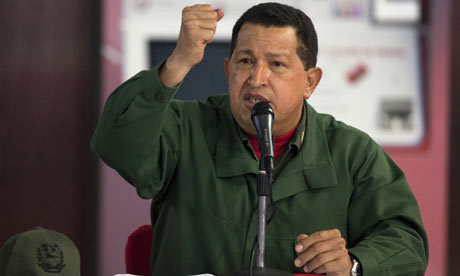Jan 11/10 | The Revolution Was Devalued: From Mismanaged Bonanza to Lasting Ruin

WSJ | JANUARY 11, 2010
Devaluation Sparks Chaos in Caracas
By JOHN LYONS and DARCY CROWE
CARACAS -- President Hugo Chávez's decision to devalue Venezuela's bolivar and impose a complicated new currency regime may paper over some growing cracks in the economy, but it is also setting the stage for bigger problems down the road for the country's oil-rich nation and its populist leader.
Over the weekend, there were signs that Mr. Chávez's slashing of the "strong bolivar" currency could create as many problems as it solves in Venezuela's economy, provoking a wave of anxiety that sent Venezuelans scurrying to spend cash they feared could soon be worthless.
At Caracas's middle-class Sambil shopping mall, lines at cashiers reached 50-deep. Carmen Blanco, a 28-year-old accountant, waited to buy a 42-inch flat-screen television she doesn't need because she already has one at home.
"It doesn't make any sense to keep my savings," Ms. Blanco said Saturday. "I'd love to see how things work in a normal country."
On Sunday, Mr. Chávez vowed to fight speculation and price increases that could result from the devaluation, which raises the price of imports.
Harried by recession and sliding popularity, Mr. Chávez on Friday weakened the bolivar to 4.3 per dollar from 2.15 in a bid to shore up government finances, which have been hit by weaker oil prices, and to stimulate economic growth ahead of key elections.
In order to protect the poor, his main constituency, from the move, Mr. Chávez announced the creation of another exchange rate of 2.6 bolivars per dollar for imports of food, medicine and other essential goods. Those rates will compete with a black-market rate, where the bolivar had plunged, forcing the official devaluation. On Friday, that black-market rate stood at about 6.25 per dollar.
Economists will be watching the black-market rate in the coming days to gauge whether companies and consumers have confidence in the new currency regime.
The complicated new currency system underscores the increasingly difficult economic and political trade-offs faced by Mr. Chávez, who has utilized rampant public spending, nationalization of key industries, and currency and price controls during more than a decade in power.
Rising oil prices granted Mr. Chávez a huge economic war chest to smooth out economic problems during most of his presidency. But with oil prices off record levels, inflation soaring and the economy stuck in recession, the era of easy choices appears to be over.
"As the going gets tougher, Chávez will become more blatant about the way he exercises power, and more blasé about attacking the opposition," says Kevin Casas-Zamora, a former vice president of Costa Rica who follows Venezuela as a senior fellow at the Brookings Institution.
Mr. Chávez, 55 years old, is gambling that the benefits of a weaker currency will offset faster inflation. Finance Minister Ali Rodriguez said devaluation may add five percentage points to the 27% inflation rate -- already among the fastest in the world.
![[Inflation Pains]](http://s.wsj.net/public/resources/images/NA-BD341_VENEZ_NS_20100110215620.gif)
In Mr. Chávez's favor, a weaker currency helps narrow a growing budget shortfall by instantly giving his oil-rich government more local currency to spend per barrel of oil exported by the state petroleum company, PDVSA. That is a key consideration with congressional elections looming in September.
Mr. Chávez has watched his popularity slide amid corruption scandals, a shrinking economy, rising crime and shortages of food and electricity. Increased spending could boost Mr. Chávez's popularity.
Mr. Chávez also predicted a weaker currency would breathe life into a domestic economy that depends on imports for everything from beef and milk to cars.
The measure may buttress the banking system, which has been rocked by the closure of several institutions amid an embezzling scandal. Many Venezuelan banks head into the devaluation holding large stocks of dollars.
Holders of dollar-denominated bonds issued by Venezuela and PDVSA will be encouraged by the move. Devaluation narrows Venezuela's financing gap to around 3% of economic output from around 7%, said Boris Segura, a Royal Bank of Scotland economist.
However, the devaluation does little to assuage the deeper problems plaguing the Venezuelan economy, economists say. Devaluation isn't enough to revive the domestic manufacturing base. Few investors are willing to brave Venezuela's maze of price caps, currency controls and the ever-present fear of nationalization.
Higher inflation from the move will also keep chipping away at the value of the bolivar, even at its new peg.
What is more, by keeping a subsidized dollar rate for importing food, medicine and essential items, Mr. Chávez removes any incentive for Venezuelans to produce what they need most.
—Dan Molinksi contributed to this article.Write to John Lyons at john.lyons@wsj.com and Darcy Crowe at darcy.crowe@dowjones.com

<< Home